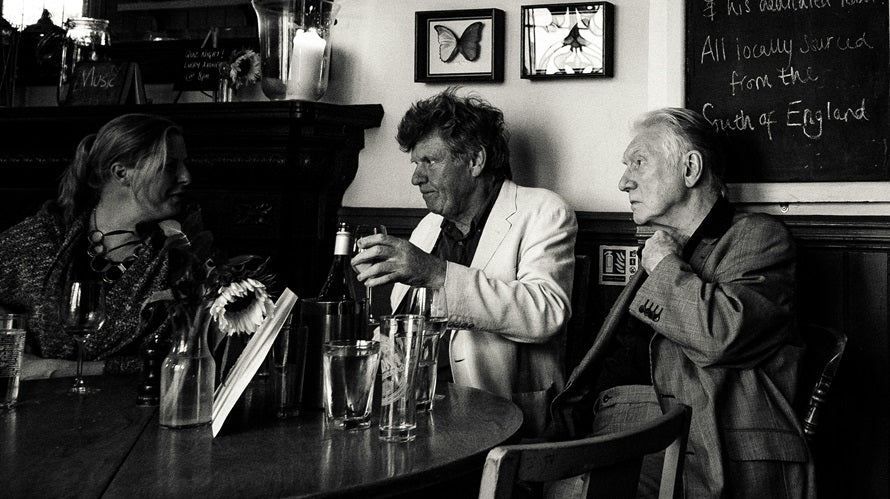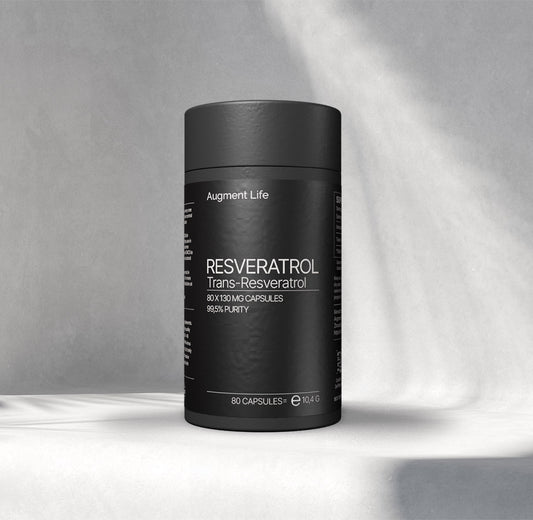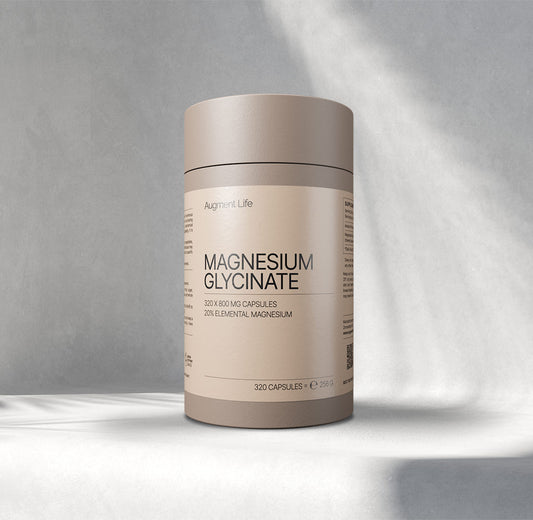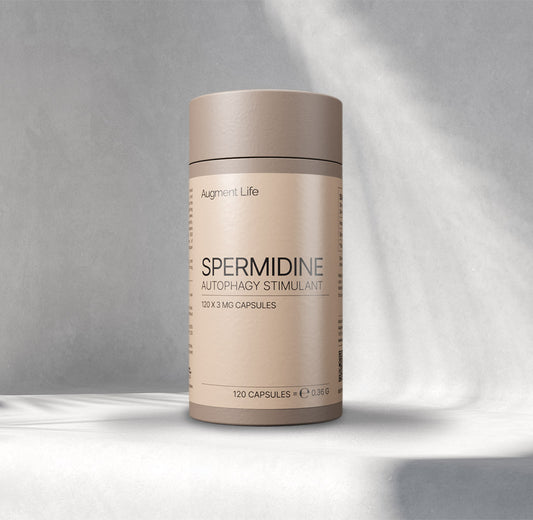Alcohol is present everywhere, and is often an important part of fun parties, celebrations, and day-to-day life. We all know that having too much alcohol too often will have very bad effects on our mind and body. However, how does regular alcohol consumption affect aging? Will we age faster if we drink alcohol?
In this article, we address some critical questions about alcohol and its impact on aging, relying on scientific studies to provide a clear perspective.
If you want to know more about how alcohol intake impacts your aging, keep reading!
What Can Alcohol Do to Your Biological Age?
Biological age reflects your body's physiological state, which can be very different from your chronological age.
Alcohol has been found to influence biological aging through its effects on cellular health and inflammation (1–3). Below is a list of negative effects of drinking too much alcohol (4):
- Accelerated oxidative stress,
- Damaged DNA,
- Decreased NAD+: NADH ratio,
- Quickened shortening of telomeres, the protective caps on the ends of chromosomes that naturally shorten with age (2).
In a previous study, researchers discovered a link between shorter telomere length and heavy drinking. According to this study, telomere length was almost halved in people with high alcohol consumption compared with people who only drink occasionally (2).
This study also demonstrated a direct correlation between alcohol intake and telomere health, showing that telomere length falls with increasing daily alcohol consumption. The telomere length of those who drank more than four drink units per day—roughly four standard cans or bottles of beer—was much shorter than that of those who didn’t have alcohol. These results suggest that higher alcohol intake is associated with faster cellular aging (2).
Telomere shortening is connected with a higher risk of developing chronic illnesses such as cancer, cardiovascular issues, and neurodegenerative disorders (2).
Does Alcohol Age You?
The short answer is yes: drinking too much alcohol can age your health and appearance. Alcohol makes you dehydrated, reduces skin elasticity, and contributes to wrinkles. Alcohol also lowers the amounts of essential vitamins like vitamin A, a key player in skin repair, and vitamin C, which combats free radicals (4).
Internally, alcohol strains your liver, which is crucial for detoxification and removing alcohol from your body. Chronic drinking can lead to liver damage, hormonal imbalances, oxidative stress, and systemic inflammation, all of which contribute to premature aging (4).
Drinking large amounts of alcohol at once or consuming many drinks throughout the week significantly increases the risk of harmful consequences, including injuries and health problems (5).
Heavy drinking also causes earlier onset of age-related diseases, including (3):
- Systemic inflammation,
- Sleep disturbances,
- Cancers,
- Cognitive decline,
- Risk of injury and death from falls and other accidents.
In addition, people who consistently abuse alcohol over time also face a greater risk of developing alcohol use disorder (AUD), also called alcohol dependence (5).
How Does Drinking Age You?
Alcohol can age you in many different ways related to your metabolism. Some of these are:
- Nutritional deficits: Alcohol is considered empty calories and contributes to long-term nutritional deficits, lowering your levels of micronutrients (zinc, calcium, magnesium) and vitamins (4).
- Cellular Damage: Alcohol increases the production of free radicals, unstable molecules that damage cells, proteins, and DNA. This oxidative stress speeds up aging and increases vulnerability to diseases (4).
- Inflammation: Alcohol consumption can stimulate the production of inflammatory molecules, promoting chronic inflammation in the body (6).
- Muscle mass loss and function: Acute and chronic alcohol use leads to changes in your muscles, destroying them and preventing you from developing new ones (7).
Explore our articles and discover how to combat the effects of alcohol consumption, such as chronic inflammation and free radical damage.
Does Alcohol Age Your Brain?
The brain is going to be damaged by the effect of heavy drinking as well. It is well known that chronic heavy drinking can lead to a loss of brain volume, especially in regions responsible for memory, decision-making, and learning (1, 8).
A study published in Nature Communications in 2022 suggested that even moderate drinking—one to two drinks per day—could reduce gray matter volume in the brain (8). Alcohol intervenes with how your brain sends signals to cells, mostly through neurotransmitters. Over time, alcohol consumption can increase susceptibility to age-related brain pathologies and disease (8,9).
Some findings say that light to moderate drinking may have a protective effect on cardiovascular health, which would help the brain too. But, these findings remain controversial (10). These are mostly connected to drinking red wine and having some polyphenols together with alcohol present in it.
It is worth remembering that alcohol is a toxic, addictive substance classified as a Group 1 carcinogen by the International Agency for Research on Cancer. Ethanol (alcohol) contributes to cancer development through biological mechanisms as it is metabolized in the body. This means that any alcoholic beverage, regardless of its price or quality, poses a risk of cancer (11).
The Dietary Guidelines for Americans recommend that adults of legal drinking age choose either not to drink or drink in moderation.
However, according to the World Health Organization (WHO), currently available scientific evidence can't tell as where cardio protection by alcohol ends, and bad carcinogenic effects start. This means no level of alcohol consumption is considered safe for our health (11).
At What Age Should You Stop Drinking Alcohol?
There isn’t a universal “cut-off” age for alcohol consumption, as the effects of alcohol change depending on individual health, genetics, and drinking habits. However, as we age, our bodies process alcohol less efficiently, and the risk of alcohol-related harm increases (5).
The National Institute on Aging suggests older people should consume alcohol with caution, because of their:
- medication use,
- liver health,
- potential risk of falling (5).
Reducing or staying away from alcohol can be good for you at any age, especially if you notice side effects. There are many potential reasons to cut down on or stop drinking, including (5):
- Keep your diabetes under control,
- Maintain healthy blood pressure levels,
- Support proper liver function,
- Avoid legal issues or harm to yourself and others by not driving under the influence,
- Lower the risk of falling and injuring yourself,
- Feel less drowsy or nauseous in the morning after drinking,
- Reengage with activities you used to enjoy,
- Avoid embarrassment related to your behavior when drinking,
- Protect and nurture your relationships with friends and loved ones.
Can You Reverse Aging from Alcohol?
The good news is that many effects of alcohol seem to be reversible to an extent if you reduce or stop drinking.
Current evidence suggests that stopping alcohol use supports significant recovery (12). More research is needed to find out if giving alcohol up after chronic consumption fully restores the health of your affected organs, including the heart, liver, gastrointestinal tract, pancreas, and bones.
A Balanced Perspective
We know that there are many health risks associated with heavy drinking and that drinking so much can really affect how you age. However, it might be difficult to completely stay away from occasional or social drinking. If you have a drink now and then to celebrate or have a fun night out, you’ll probably be okay. Of course, moderation is key!
The best approach for you is to be mindful of your alcohol consumption and prioritize overall wellness through:
- a balanced diet,
- regular exercise,
- adequate sleep.
Conclusion
Alcohol can significantly impact biological and brain aging, and too much of it can damage your body even at the cellular level. However, by reducing or eliminating alcohol, you can potentially reverse some aging effects.
If you’re concerned about how alcohol may be affecting your health, consider consulting with a healthcare professional to develop a plan that aligns with your wellness goals.
Literature sources:
- Topiwala A, Wang C, Ebmeier KP, Burgess S, Bell S, Levey DF, et al. Associations between moderate alcohol consumption, brain iron, and cognition in UK Biobank participants: Observational and mendelian randomization analyses. PLoS Med. 2022 Jul 1;19(7). https://doi.org/10.1371/journal.pmed.1004039
- Pavanello S, Hoxha M, Dioni L, Bertazzi PA, Snenghi R, Nalesso A, et al. Shortened telomeres in individuals with abuse in alcohol consumption. Int J Cancer. 2011 Aug 15;129(4):983. https://pmc.ncbi.nlm.nih.gov/articles/PMC3125427/
- White AM, Orosz A, Powell PA, Koob GF. Alcohol and aging – An area of increasing concern. 2023 Mar 1;107:19–27. https://doi.org/10.1016/j.alcohol.2022.07.005
- Simon L, Souza-Smith FM, Molina PE. Alcohol-associated tissue injury: current views on pathophysiological mechanisms. Annu Rev Physiol. 2022;84:87. https://pmc.ncbi.nlm.nih.gov/articles/PMC11268381/
- Facts About Aging and Alcohol | National Institute on Aging. Available from: https://www.nia.nih.gov/health/alcohol-misuse-or-alcohol-use-disorder/facts-about-aging-and-alcohol#the-effects-of-alcohol-change-as-we-age
- Crews FT, Bechara R, Brown LA, Guidot DM, Mandrekar P, Oak S, et al. Cytokines and alcohol. Alcohol Clin Exp Res. 2006;30(4):720–30. https://pubmed.ncbi.nlm.nih.gov/16573591/
- Simon L, Bourgeois BL, Molina PE. Alcohol and skeletal muscle in health and disease. Alcohol Res. 2023;43(1):04. https://pmc.ncbi.nlm.nih.gov/articles/PMC10627576/
- Daviet R, Aydogan G, Jagannathan K, Spilka N, Koellinger PD, Kranzler HR, et al. Associations between alcohol consumption and gray and white matter volumes in the UK Biobank. Nature Communications 2022;13(1):1–11. https://www.nature.com/articles/s41467-022-28735-5
- Evangelou E, Suzuki H, Bai W, Pazoki R, Gao H, Matthews PM, et al. Alcohol consumption in the general population is associated with structural changes in multiple organ systems. Elife. 2021;10:e65325. https://pmc.ncbi.nlm.nih.gov/articles/PMC8192119/
- Bryazka D, Reitsma MB, Griswold MG, Abate KH, Abbafati C, Abbasi-Kangevari M, et al. Population-level risks of alcohol consumption by amount, geography, age, sex, and year: a systematic analysis for the Global Burden of Disease Study 2020. The Lancet. 2022;400(10347):185–235. http://www.thelancet.com/article/S0140673622008479/fulltext
- No level of alcohol consumption is safe for our health. Available from: https://www.who.int/europe/news/item/04-01-2023-no-level-of-alcohol-consumption-is-safe-for-our-health
- Thomes PG, Rasineni K, Saraswathi V, Kharbanda KK, Clemens DL, Sweeney SA, et al. Natural recovery by the liver and other organs after chronic alcohol use. Alcohol Res. 2021;41(1). https://doi.org/10.35946/arcr.v41.1.05












